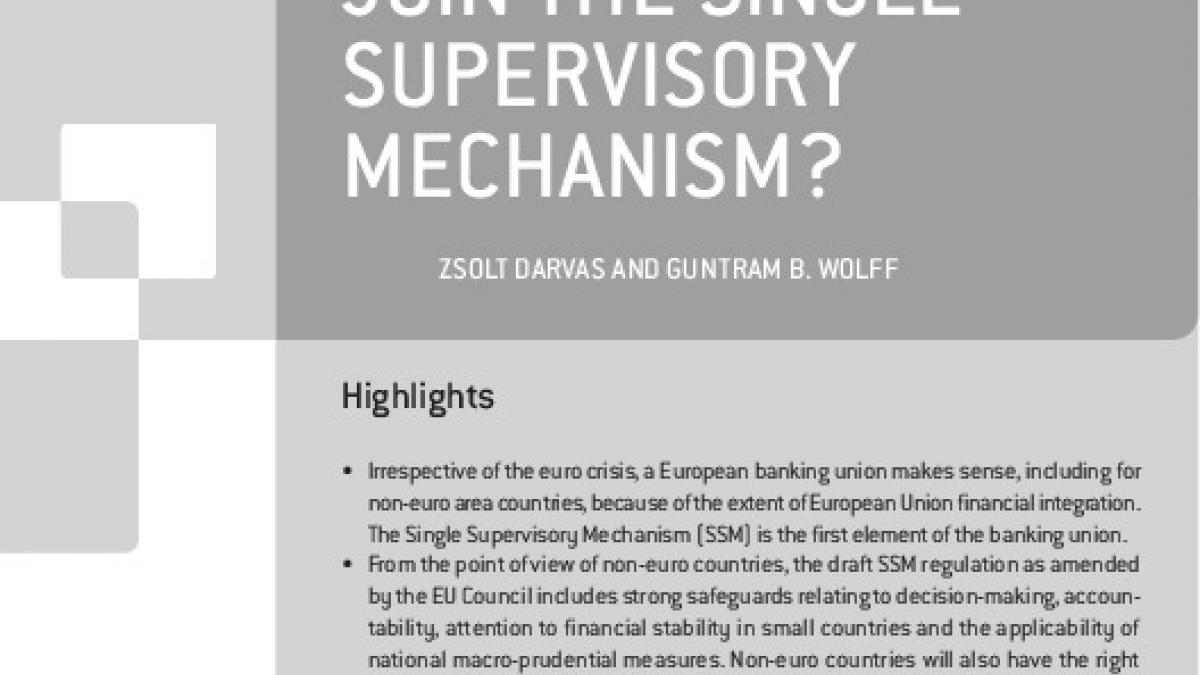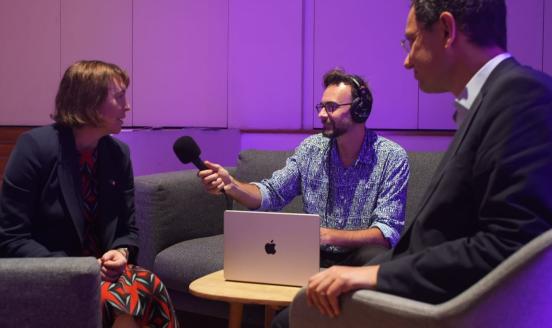Should non-euro area countries join the single supervisory mechanism?
This Policy Contribution was prepared for a hearing on The economic crisis and the development of the European Union at the Danish Parliament on 26 Fe

Irrespective of the euro crisis, a European banking union makes sense, including for non-euro area countries, because of the extent of European Union financial integration.The Single Supervisory Mechanism (SSM) is the first element of the banking union.
From the point of view of non-euro countries, the draft SSM regulation as amended by the EU Council includes strong safeguards relating to decision-making, accountability,attention to financial stability in small countries and the applicability of national macro-prudential measures. Non-euro countries will also have the right to leave the SSM and thereby exempt themselves from a supervisory decision.
The SSM by itself cannot bring the full benefits of the banking union, but would foster financial integration, improve the supervision of cross-border banks, ensure greater consistency of supervisory practices, increase the quality of supervision,avoid competitive distortions and provide ample supervisory information.
While the decision to join the SSM is made difficult by the uncertainty about other elements of the banking union, including the possible burden sharing, we conclude that non-euro EU members should stand ready to join the SSM and be prepared for the negotiations of the other elements of the banking union.



